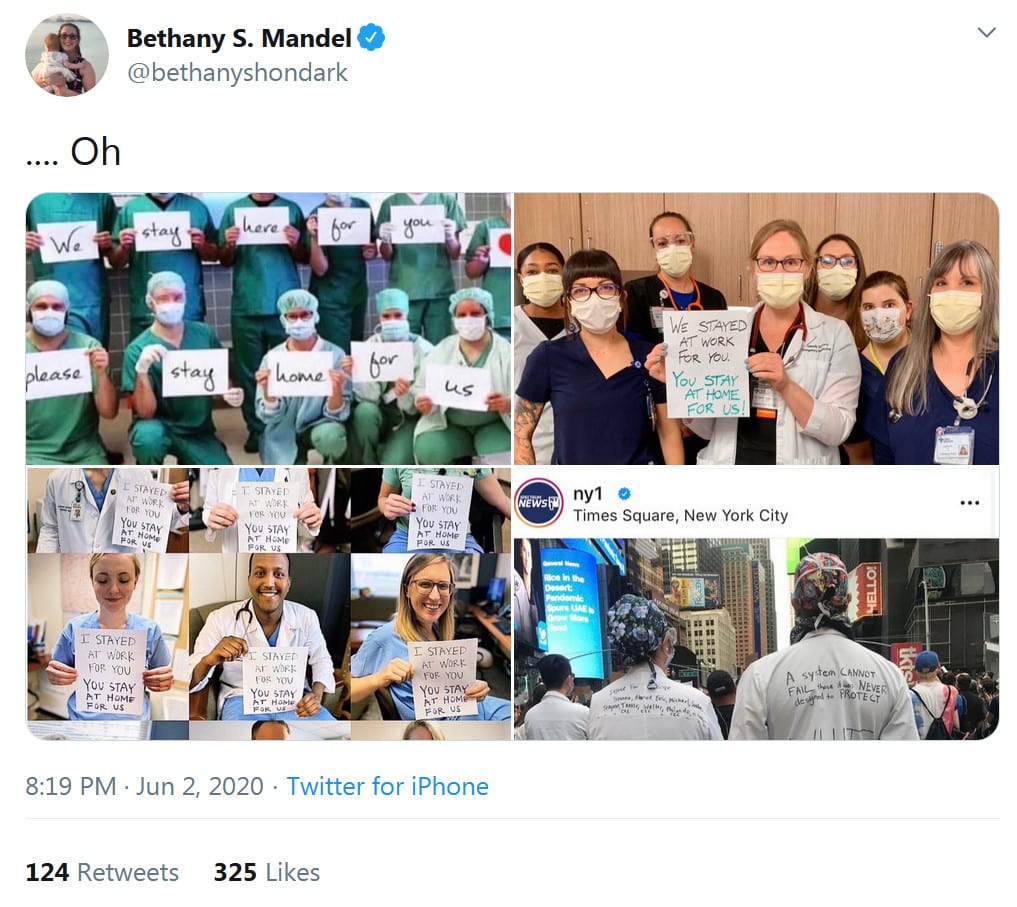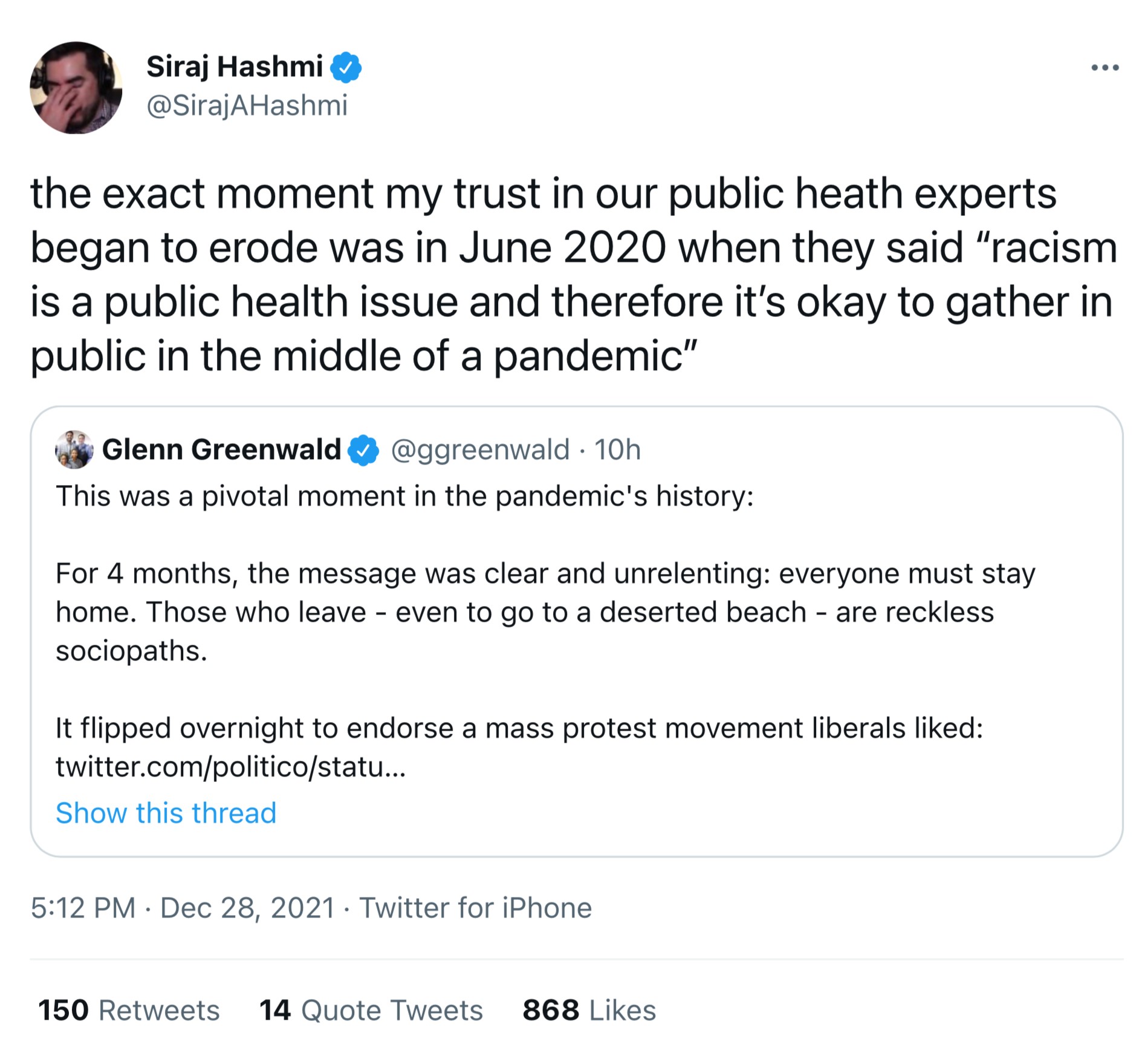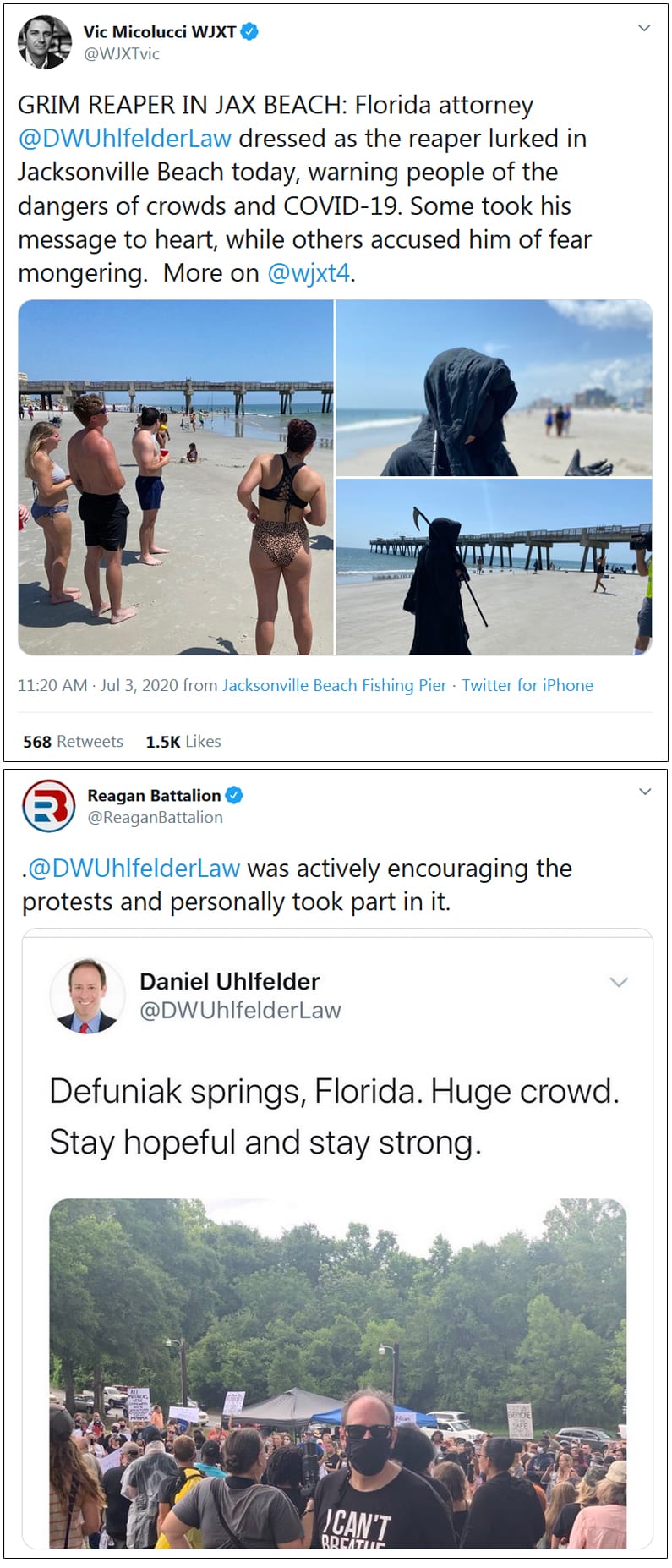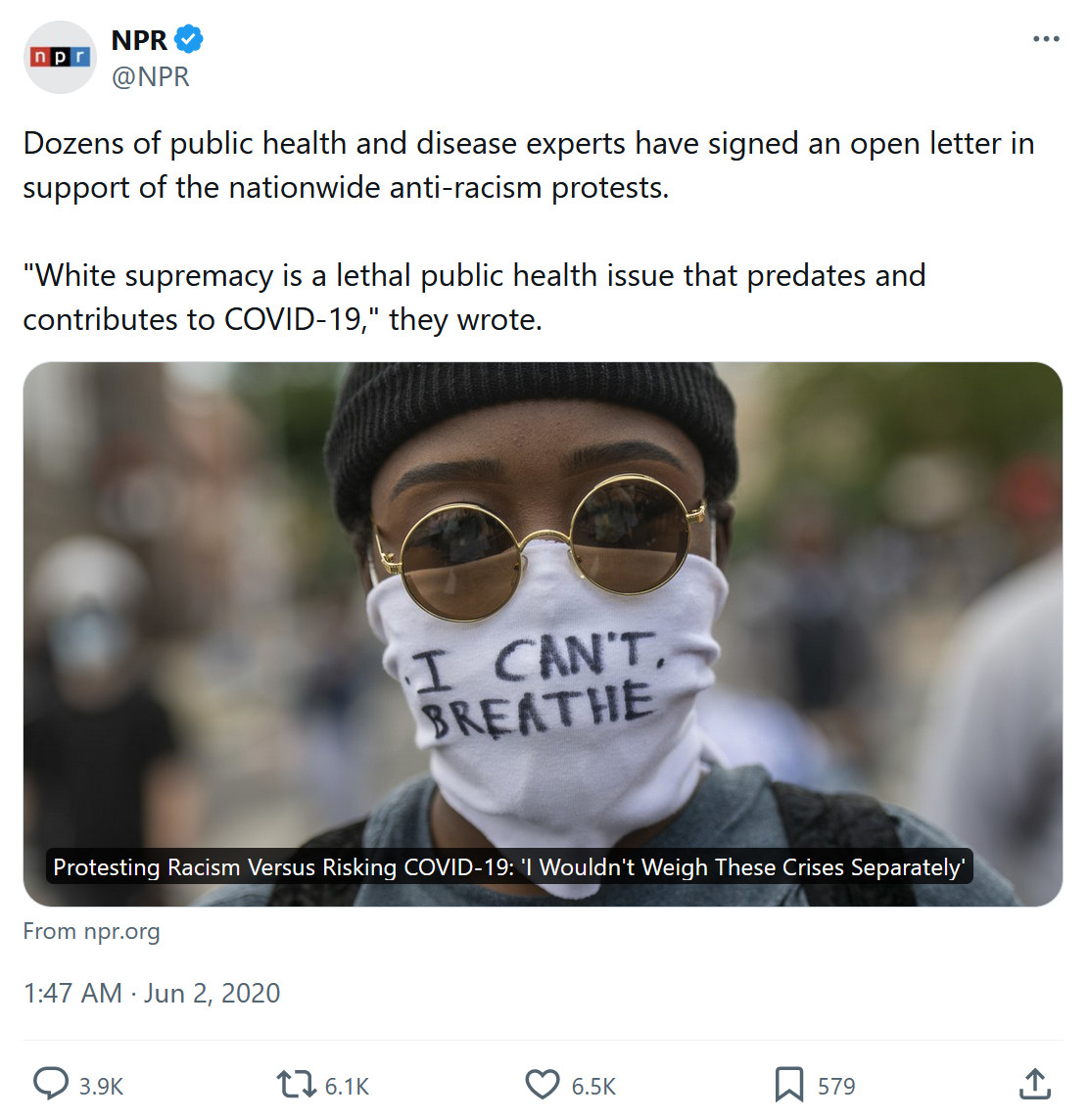FOUR YEARS AGO TODAY, THE PIVOT BEGAN: ‘Did I miss the memo?’: Hospital workers in full PPE applaud George Floyd protesters as they march past.



As Greenwald writes in his follow-up tweet, “That episode single-handedly destroyed trust in public health officials, proving they’d politicize their expertise when convenient. Corporate media celebrated a douchebag-lawyer shaming families at deserted beaches, then — overnight! — cheered densely packed street protests.”
QED: Shot: Grief and COVID-19: Mourning our bygone lives.
The COVID-19 pandemic is an epidemiological crisis, but also a psychological one. While the situation provokes anxiety, stress and sadness, it is also a time of collective sorrow, says Sherry Cormier, PhD, a psychologist who specializes in grief and grief mentoring. “It’s important that we start recognizing that we’re in the middle of this collective grief. We are all losing something now.”
Many people are reckoning with individual losses, including illness and death due to the novel coronavirus, or loss of employment as a result of economic upheaval. But even people who haven’t lost anything so concrete as a job or a loved one are affected, Cormier says. “There is a communal grief as we watch our work, health-care, education and economic systems — all of these systems we depend on — destabilize,” she says.
—The American Psychological Association, April 1st, 2020.
Chaser: APA’s action plan for addressing inequality.
Dear Colleagues,
We are writing to you while still reeling from the tragic murder of George Floyd by Minneapolis police and the ongoing protests, which are reverberating in a shockwave throughout our nation and around the world.
These recent events present us with an urgent challenge—as an association, discipline and profession, and individual psychologists—to bring our expertise to bear to address the range of underlying problems these events represent from discrimination to racism, which have resulted in long-standing social, economic, and political inequalities, from police brutality, to the disproportionate spread of the coronavirus among black and brown people, to the soaring unemployment rates among communities of color.
APA is urging psychologists to share their thoughts and recommendations for using the power of psychology to address the “pandemic of racism,” both in the short and long term. As part of that process, we must also examine our role as a field and as an association in perpetuating these ills.
—The American Psychological Association, June 2nd, 2020.
Note the photos atop those Webpages. The April 1st post is illustrated by photos of an elderly white woman looking frustrated in her apartment, and a young black woman staring wistfully into the distance outside the window of her apartment, with the photos separated by a white dividing line to emphasize both persons’ isolation from the world. Contrast that with the photo of the massed protestors carrying “Black Lives Matter” placards atop the June 2nd post.
NPR also pivoted on June 2nd, 2020:

The DNC-MSM and local mayors turned on a dime from enforcing hard-line lockdown rules and shaming anyone who went to church or got a haircut, to letting rioters congregate with impunity. As Bill de Blasio was quoted four years ago today, “When you see…an entire nation, simultaneously grappling with an extraordinary crisis seated in 400 years of American racism, I’m sorry, that is not the same question as the understandably aggrieved store owner or the devout religious person who wants to go back to services.”
Flashbacks:
● After telling GOP to downsize convention due to COVID-19, N.C. governor marches in crowded protest.
● De Blasio: Large Group Protests Are Acceptable, Religious Observances Are Not.
● Welcome to protest season, where the cause changes but the tactics stay the same.
